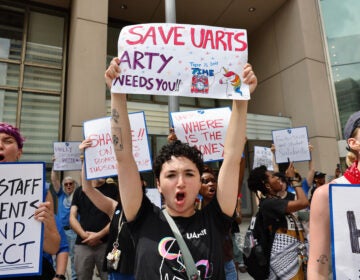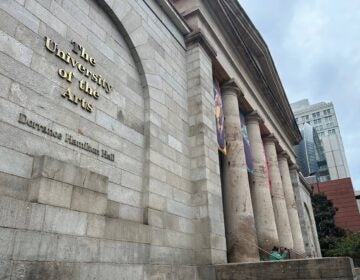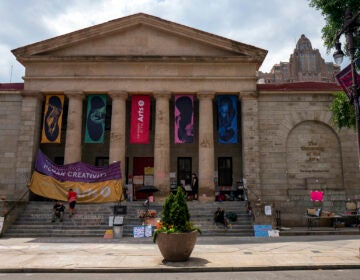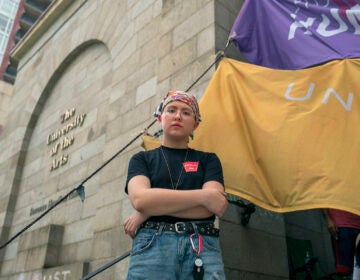After sudden closure, Philly’s UArts shares few details in first court appearance, and laid-off employees have yet to be paid
A lawyer representing the shuttered university told the judge she didn’t have details to share, including how much money UArts has or when it can settle a final payroll.
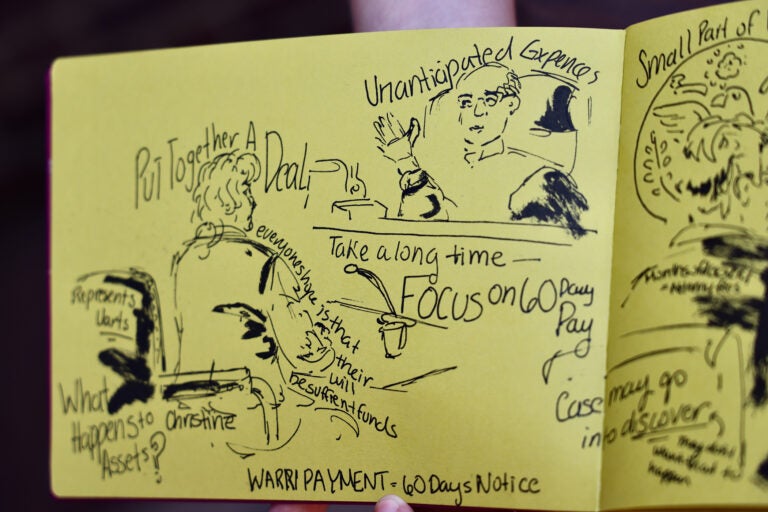
A sketch by former University of the Arts student Brittney Mallon captures an exchange between Judge Chad Kenney and UArts attorney Kristine Grady Derewicz. The case centers on the 60-day notice that the school was required to give employees. (Emma Lee/WHYY)
UArts closure: What you need to know
- Philadelphia’s University of the Arts recently announced its sudden closure
- The abrupt closure has sparked widespread criticism from students, faculty and staff, who have pushed for answers from the university
- UArts president Kerry Walk resigned shortly before the university’s last day
- The future remains unclear for UArts students, some of whom are watching the school collapse from abroad
- Here’s what might happen to the school’s $61 million endowment and historic buildings
From Philly and the Pa. suburbs to South Jersey and Delaware, what would you like WHYY News to cover? Let us know!
The University of the Arts on Wednesday appeared in U.S. Court for a preliminary hearing over a class-action lawsuit brought by the UArts employee union.
The union’s suit is based on the WARN Act, a federal law that requires employers shutting down their businesses to give a 60-day advanced warning to employees, or pay them 60 days’ wages. The University of the Arts announced on May 31 that it would shut down just seven days later.
Representing UArts, Kristine Grady Derewicz told District Court Judge Chad F. Kenney that the university suffered “unforeseen business circumstances” and is currently trying to raise the cash needed to pay its laid-off employees 60 days of wages.
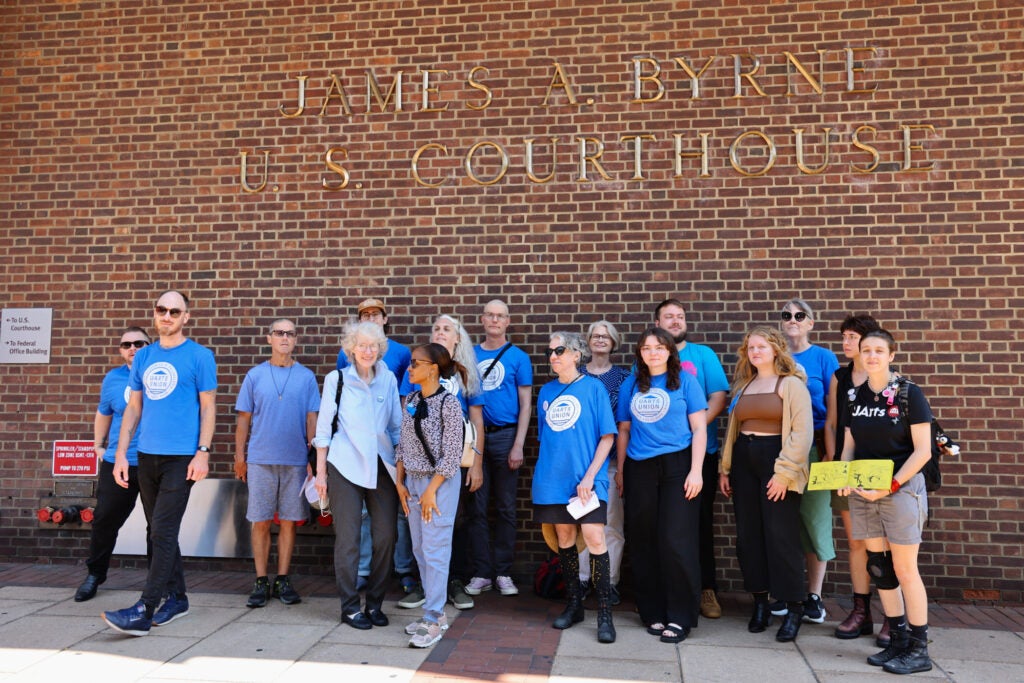
Derewicz did not say what those unforeseen business circumstances were, and indicated the university did not want to reveal them. Both the university and the union said they would prefer to settle the payroll issue quickly without having to go to trial, which would be costly and lengthy.
A trial would also involve a period of discovery, which might force UArts to reveal business records leading up to the closure.
“It’s in our client’s best interest, it’s in the university’s best interest to have a quick resolution,” said Ryan Hancock, an attorney for the union, outside the court building. “If we’re unable to do that, then of course we’re going to press for all the discovery necessary to take the case to trial.”
UArts has the option to show that dire business circumstances made it impossible to satisfy the WARN Act’s 60-day mandate, but proving that would involve revealing business records.
Derewicz told the judge he didn’t have details to share with the court, including how much money the university has, expects to have, or when it can settle a final payroll.
“Information flow has been challenging,” she said. “I am somewhat constrained right now.”
Derewicz said a clearer picture about how much financing UArts can come up with should be known in “a few weeks, maybe a month.”
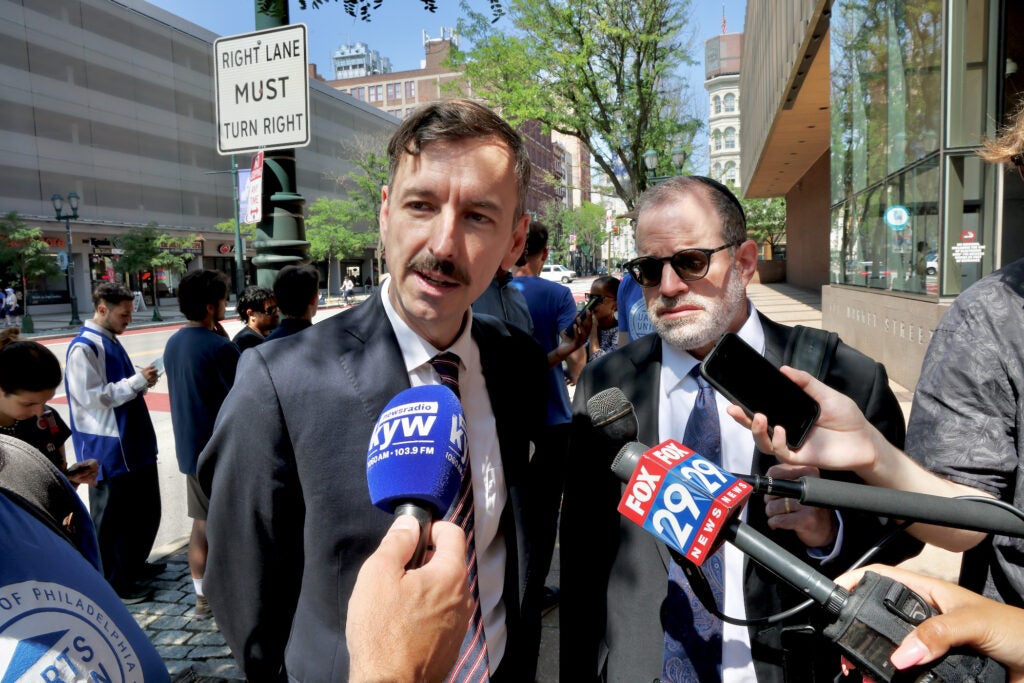
“We’ve heard that before about a month ago, and nothing’s changed,” Hancock said. “Until our clients have been paid and made whole, we’re going to keep moving forward.”
Several dozen UArts students and staff were present in the courtroom for the hearing. Among them was Rick Rein, an adjunct music instructor for three years until the June 7 layoffs. He liked hearing that his former employer seems to have the best intentions to pay staff.
“I appreciate that they’re not saying the opposite,” he said. “It’s a good thing that they intend to do the right thing.”
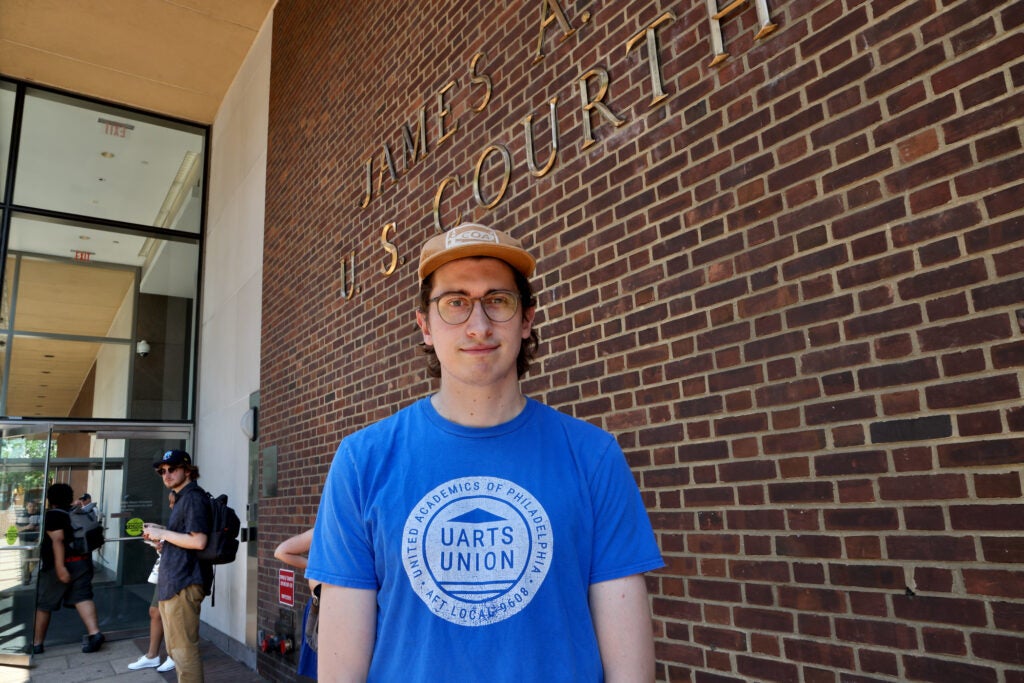
While Rein would like to get a peek under the hood and learn why UArts experienced such a sudden collapse, getting paid takes priority.
“I would love to have more information. I would also love a check,” he said. “I will take what I can get.”
The UArts union has filed additional charges against the University with the National Labor Relations Board.

Get daily updates from WHYY News!
WHYY is your source for fact-based, in-depth journalism and information. As a nonprofit organization, we rely on financial support from readers like you. Please give today.



